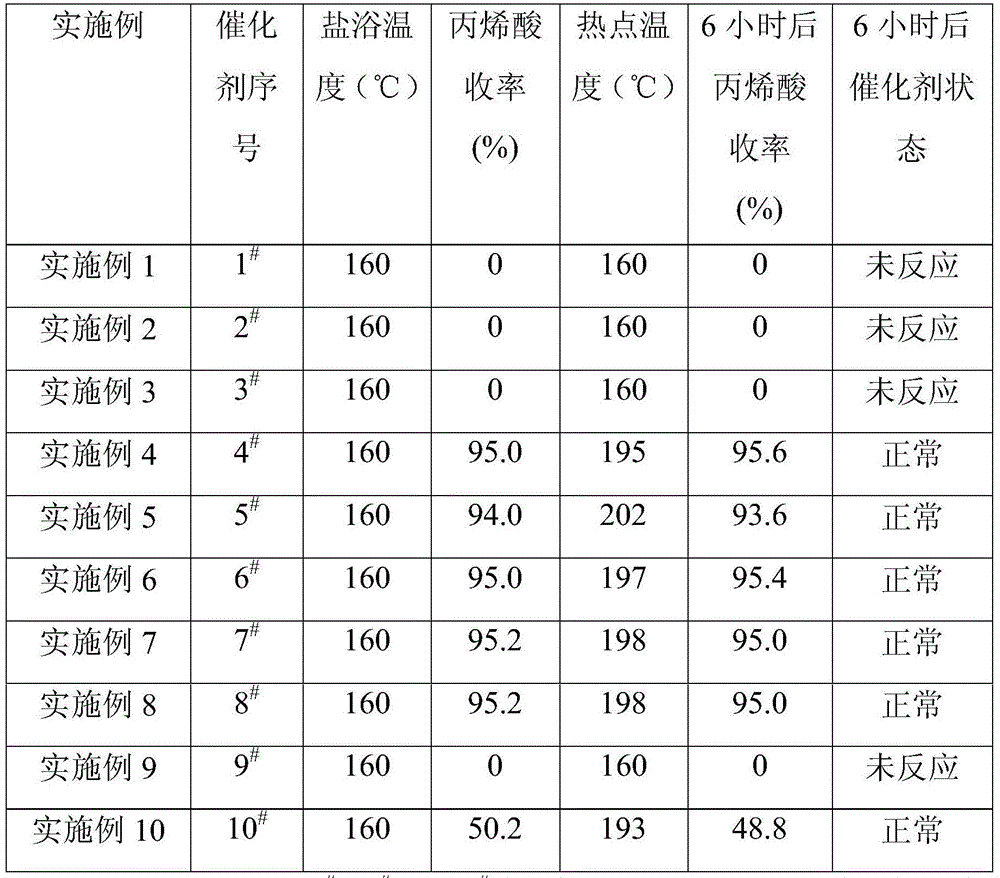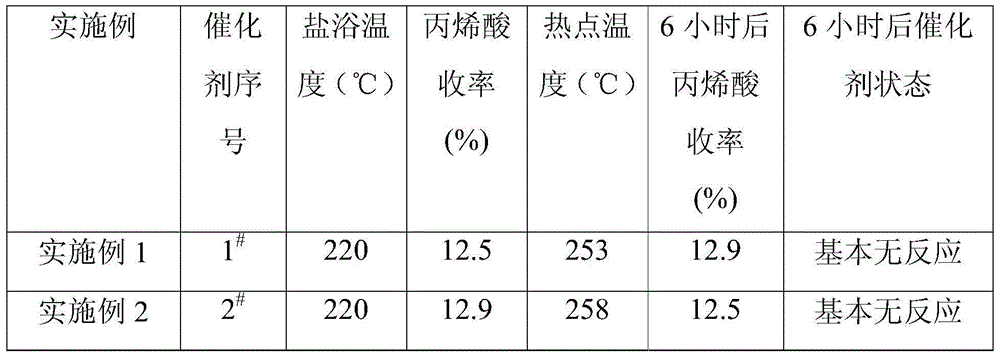Low-temperature selective oxidation catalyst for converting acraldehyde into acrylic acid and application thereof
A technology of selective oxidation and acrolein, applied in the direction of metal/metal oxide/metal hydroxide catalyst, physical/chemical process catalyst, organic compound preparation, etc., can solve the problem of catalyst deactivation and achieve the ability to resist overheating Strong, mild and stable reaction, wide operating window effect
- Summary
- Abstract
- Description
- Claims
- Application Information
AI Technical Summary
Problems solved by technology
Method used
Image
Examples
Embodiment 1
[0026] Embodiment 1: preparation of composite oxide
[0027] In a 20L five-neck flask, put 10L of distilled water, then put a certain amount of copper nitrate, nickel nitrate, ammonium metavanadate, ammonium molybdate, strontium nitrate, and magnesium nitrate into it and stir to form a slurry state, and then the mixed solution is dried by pumping it into a spray dryer, the inlet temperature of the spray dryer is 200°C, and the outlet is not lower than 80°C. The obtained dry powder was ground in a ball mill for 2 hours to obtain a fine powder, shaped on an extruder, and then calcined at 320° C. for 6 hours. The active component is Mo 12 V 3 Nb 0.5 Cu 0.4 Ni 0.8 Sb 48 Mg 0.1 o x , labeled Catalyst 1 # .
Embodiment 2
[0028] Embodiment 2: preparation of composite oxide
[0029] Other is with embodiment 1, makes Mo 12 V 3 Nb 0.5 Cu 0.4 Ni 0.8 Sb 120 Mg 0.1 o x , labeled Catalyst 2 # .
Embodiment 3
[0030] Embodiment 3: preparation of composite oxide
[0031]Other is with embodiment 1, makes Mo 12 V 3 Nb 0.5 Cu 0.4 Ni 0.8 Sb 240 Mg 0.1 o x , labeled Catalyst 3 # .
PUM
 Login to View More
Login to View More Abstract
Description
Claims
Application Information
 Login to View More
Login to View More - R&D
- Intellectual Property
- Life Sciences
- Materials
- Tech Scout
- Unparalleled Data Quality
- Higher Quality Content
- 60% Fewer Hallucinations
Browse by: Latest US Patents, China's latest patents, Technical Efficacy Thesaurus, Application Domain, Technology Topic, Popular Technical Reports.
© 2025 PatSnap. All rights reserved.Legal|Privacy policy|Modern Slavery Act Transparency Statement|Sitemap|About US| Contact US: help@patsnap.com



